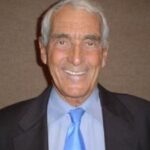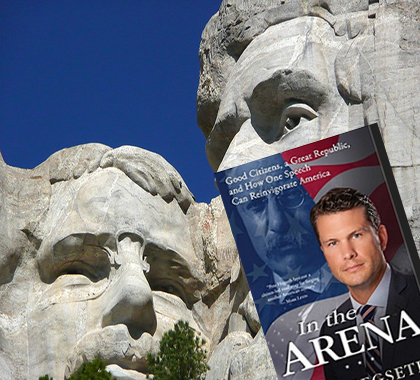Pete Hegseth’s In the Arena: Good Citizens, a Great Republic, and How One Speech Can Reinvigorate America is a passionate call for engaged citizens that will stop complaining about the state of affairs in their communities and country and become the change they want to see around them.
Molded by military service and a belief in American exceptionalism, Hegseth recounts how his love of country led him to enlist in the U.S. Army after the September 11, 2001, terrorist attacks and how that same patriotism called him to take his message to the people. After returning from his tours of duty in Afghanistan and Iraq, differences between the reality he saw every day and the descriptions of those countries in the U.S. media inspired Hegseth to take up a new fight: the cultural effort to rekindle America’s spirit of greatness.
Fortune Favors the Bold
In 1910, President Theodore Roosevelt spoke at the Sorbonne, in Paris, France, representing a newly ascendant America to a European audience.
“It is not the critic who counts; not the man who points out how the strong man stumbles, or where the doer of deeds could have done them better,” Roosevelt said. “The credit belongs to the man who is actually in the arena, … who at the best knows in the end the triumph of high achievement, and who at the worst, if he fails, at least fails while daring greatly, so that his place shall never be with those cold and timid souls who neither know victory nor defeat.”
Edge of Greatness
Throughout In The Arena, Hegseth describes Roosevelt as the leader of a country on the verge of greatness, although its people did not yet know what fate had in store for them.
Had the American people not taken charge of their destiny, Hegseth writes, the new century could have resembled the previous one, with its course dominated by the same European powers that ruled previous eras.
“History is deceptive in the certainty it delivers, but the 20th century was never destined to be an American century—it could have been, just as likely, another British century or a new French, Russian or German century,” Hegseth wrote. “Instead, largely on the back of the American ethos Teddy Roosevelt established, America dominated the 20th century. His words from that moment in time—1910 at the grandest of academic stages in France—serve as a historical compass for how America today can continue to follow his lead, and make the 21st century another American century. Across the mighty Atlantic Ocean and overlooking a brave new century, Roosevelt’s guiding principles—citizenship, strength, and action—echo through every word of his speech: ‘be good,’ ‘be strong,’ ‘get in the arena.'”
Forgotten American Greatness
Hegseth turns from looking back at Roosevelt’s place in history to examining the present state of the nation. He succinctly explains how America has forgotten what made this nation great in the days of Roosevelt and why it’s important to recapture Roosevelt’s can-do spirit, which led to America’s rise as a global superpower.
The values Roosevelt espoused in his “Arena” speech have been forgotten, Hegseth writes, causing children to grow up ignorant of why America enjoys a special role in history.
“But we look out at America today, and realize that—tragically—the spirit of Teddy Roosevelt’s speech has been snuffed out,” Hegseth wrote. “At home, we teach our kids to be environmental evangelists, but not economically self-sufficient. We give all our kids a fifth place trophy, but not the tough love of failure that breeds development, improvement, and ultimately earned success.”
Remembering Free-Market Values
Hegseth says believing in and practicing free-market values, such as individualism, were a key to America’s success in the 20th century. Replacing those values with un-American ideas, such as socialism and collectivism, has caused the nation’s decline, says Hegseth.
“Socialism and other forms of collectivism purport to support ‘workers’ through greater government control of the economy and steeper forms of wealth redistribution, but the opposite plays out every time such a system is attempted,” Hegseth wrote. “Socialism inherently restricts the competitive engine of any economy, creating less opportunity, and less wealth, for the entire society. Socialism shrinks the economic pie, puts a ceiling on earned success, and diminishes society.
“Only capitalism unleashes the potential of individuals, families, and companies to innovate, compete, and earn in ways that benefit themselves and the entire economy,” Hegseth writes. “Free-market capitalism, while never perfect, is by far the most moral, fair, and prosperous form of economic organization the world has ever seen.”
In the Arena: Good Citizens, a Great Republic, and How One Speech Can Reinvigorate America is a wonderful book. It was written by a man who has seen and done great things precisely because he was inspired by America itself.
Merely reading In the Arena is not enough to make America great again, however. Readers will be challenged to heed Hegseth’s words and recapture the rugged American spirit in thought and deed. In doing so, another American century will dawn anew, as the people return to “the arena” and apply the principles that unleashed American greatness in the past.





